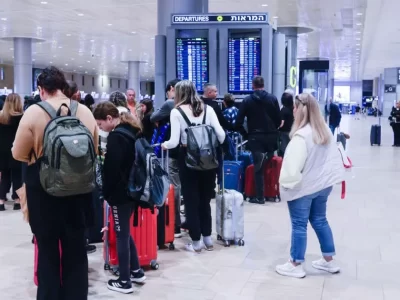
Frank Belzer is senior vice president of sales and partner relations at
Margaritaville at Sea, a position he accepted in December. He has been a
regular speaker and panelist at travel trade conferences.
“When you undervalue what you do, the world will undervalue who you are.”
Oprah Winfrey wasn’t speaking directly to travel advisors when she said that. But if you are a travel advisor, there is a good chance you have never felt the truth of those words more than you do now. At this moment, your professional and individual worth might be threatened in a few ways.
There is no doubt that entire markets have changed, and consumers are starting to ask questions that never existed before. Also, people do more research than ever before, and simultaneously, consumers have more options as distribution channels continue to expand. There are more chatbots, AI and crypto currency conversations that just muddy the mental booking path. We have not even touched on the swirl around tourism sustainability, dynamic pricing algorithms and the apparent lack of authenticity with travel influencers.
But as a travel advisor, what does all of this do for your business? If you said “nothing,” then I would ask you to think again. The best answer, and the response I would like to hear more of, is that it helps drive your business. If you are providing real value, then all of these fluctuations in the market will result in you becoming a safe harbor during a hurricane. People will seek you out and feel relieved they have found you. But that is a very big “if,” isn’t it? I invite you to think introspectively and ask yourself: Are you providing real value, and how do you know?
Much research has been conducted to understand WTP, an abbreviation for consumers’ “willingness to pay.” These studies, like one that appeared in
the Journal
of the Academy of Marketing Science in 2020,
have focused on understanding how that willingness graduated based on the consumer’s value interpretation. So as a travel advisor entering the scene of a hypothetical purchase, does your presence add value or not?
More Forums by Frank Belzer:
• Travel advisors continue to thrive. Here’s why?
• Artificial intelligence? Why not try ‘experiential intelligence’?
Most of the time, WTP analysis is used to look solely at price; it begins by measuring a starting point where the consumer is indifferent to buying or not buying because WTP reflects the product’s inherent value in monetary terms; additional analysis tries to determine how much lower the price needs to be to create interest. That approach might be critical to OTAs or those who sell travel as a commodity, but hopefully there are better approaches for a qualified travel advisor. A study I read in the
Review
of Integrative Business and Economics Research in 2018 stated that if you have real value to offer the consumer, you should never lose based on pricing. Why?
The WTP equation, used in reverse, explains why and how much more the consumers will pay to take advantage of what you offer as a trusted travel advisor.
Step One: What exactly do you offer?
This factor cannot be the same thing a consumer can find anywhere else, so it’s not about the trip, the boat, the flight or the hotel. It has to be exclusive to you or, at worst, only offered by another advisor who works within the same guidelines. It could be peace of mind, expertise, pushback or challenging their point of view (that is correct; consumers will see that as a value).
Step Two: Find a way to convey that value.
You could tell them this is your value, but that will not work. The secret is to show them the value you bring to their purchasing and decision-making dilemma. That happens during your interactions with the consumer. Remember, interacting with the consumer is a significant travel advisor advantage; it’s vital to use it wisely.
Here are a couple of expressions that immediately convey some WTP to your interactions:
“I probably speak to 50 families a week who are planning an important trip just like this.” Try saying this out loud and listen to how it sounds and what it conveys. As a mother or father who has taken on the weighty task of planning a trip for the people I love most, this comforts me and tells me that I am speaking with someone who understands my family, world and concerns. WTP = +$596.00.
It sounds like you have already researched this, and the option you are describing is good. Could I make a suggestion that turns that good into great? The last thing you want to do is make a person feel defensive about the work and research they have already done, and they will have done the research. This transition recognizes this but simultaneously pushes back and makes them aware that you bring more insights than they can uncover via their searches. WTP = +$399.00.
A quick disclaimer: the WTP dollar amounts are entirely hypothetical. I could have used percentages and made the same point. In both examples, consumers who acknowledged the value would easily be willing to pay more rather than less and not have these benefits. If you feel that consumers would use you to get this feeling and still purchase from the low-price commodity seller, that is a result of one of three problems. (Warning: this might sting a little)
1. You probably need to work with the right customers, and it’s time to upgrade and change how you market yourself.
2. You do not believe these questions add value to yourself; these self-doubts sabotage your execution.
3. You cannot deliver; you are not an expert advisor. You may be a holdover from when travel advisors were just order-takers, not advisors.
In my current role, I am fortunate to work with an organization, Margaritaville at Sea, that values the “advisory” aspect that the travel trade community brings to our mutual consumers. In most of my writing, you may have noticed that I refer to travel advisors, not travel agents — that distinction is essential. More than just being a travel agent is needed; the market is too competitive, and the consumer is too nervous about making these decisions. If a web interface can replace you, then you will be replaced. For me, partnerships within the travel community are built on an exchange. I am looking for those with enough advisory capability to ensure our guests have an enhanced experience through interaction; if it only offers an equivalent experience, then like our consumers my personal WTP appetite declines drastically.










